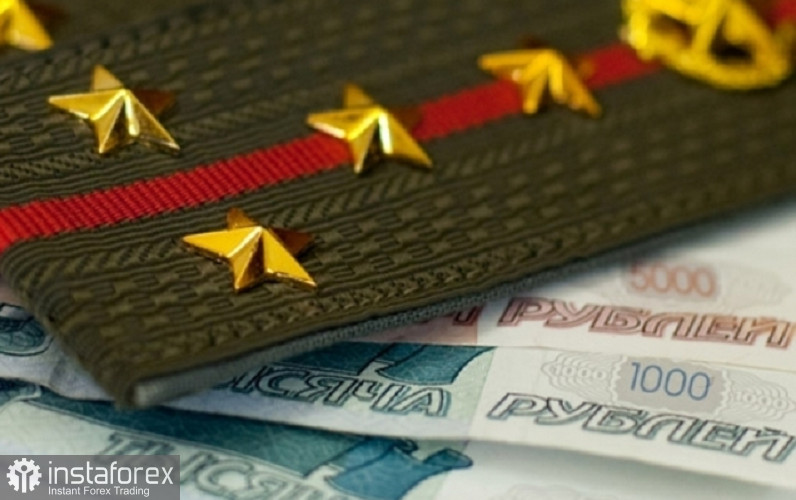On Wednesday, the Russian ruble strengthened against the euro, thus reaching an almost two-week high. This comes as the second auction by the Russian Finance Ministry to sell OFZs since the Moscow government deployed tens of thousands of troops to the conflict zone in February.
Sales of war bonds strengthen the ruble
Geopolitical tensions and the inability to predict further developments continue to affect Russian and global markets. On Wednesday, Russian President Vladimir Putin declared martial law in four regions of Ukraine that the Kremlin says are part of Russia. Logically, the next step would be to place war bonds, which is a common practice for replenishing the budget during a war period.
By 1250 GMT, the ruble gained 1.1% against the euro to hit 60.1000, having previously passed 59.4450, its highest level since October 7.
It was 0.1% weaker against the dollar to 61.62, having previously tried to gain a foothold above the 61.00 level, and gained 0.8% against the yuan to 8.44, a two-week high.
The Ministry of Finance of the Russian Federation held the first auction in several weeks for the placement of OFZs in the amount of 76.7 billion rubles with the placement of bonds in the amount of 25 billion rubles with a floating coupon rate. Promsvyazbank analysts note that the last time the ministry placed bonds was in November 2020.
Later on Wednesday, another auction will take place. The bonds of this pool are also expected to be sold. High demand at OFZ auctions contributes to the strengthening of the ruble.
Even though external factors have a conflicting effect on the ruble bond market, since there is a combination of demand for certain assets on the one hand, and lower oil prices on the other hand, nevertheless war bonds are usually in demand, since this is a great way to deposit funds for the duration of the war. Therefore, additional pools of bonds are highly expected, because this could support the budget.
The price of Brent crude, the global benchmark for Russia's main export, rose 1% to $90.9 a barrel, but is still far from its high of about $98 a barrel hit early last week.
Russian stock indices, on the contrary, are declining.
The RTS dollar index fell by 2.7% to 1011.82 points. The ruble index of the Moscow Exchange fell by 2.7% to 1,978.3 points.
 English
English 
 Русский
Русский Bahasa Indonesia
Bahasa Indonesia Bahasa Malay
Bahasa Malay ไทย
ไทย Español
Español Deutsch
Deutsch Български
Български Français
Français Tiếng Việt
Tiếng Việt 中文
中文 বাংলা
বাংলা हिन्दी
हिन्दी Čeština
Čeština Українська
Українська Română
Română


